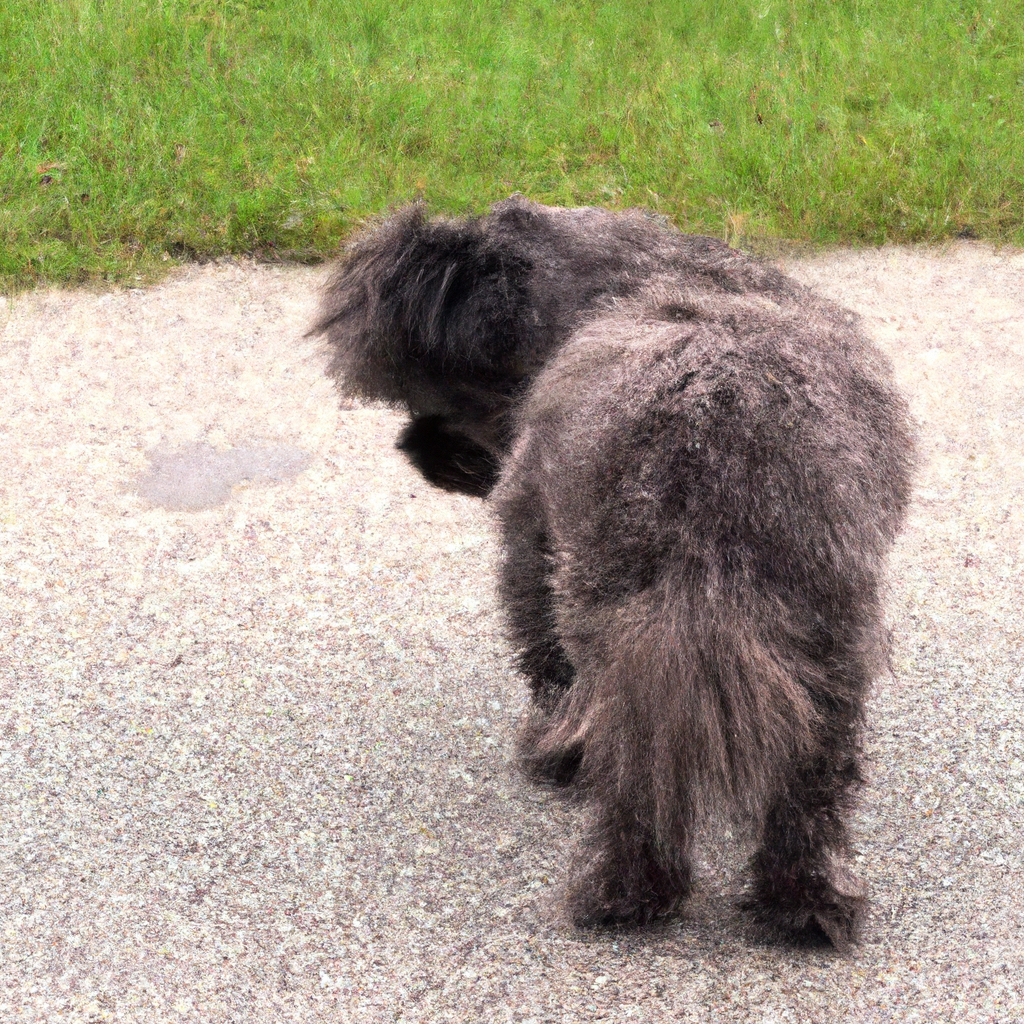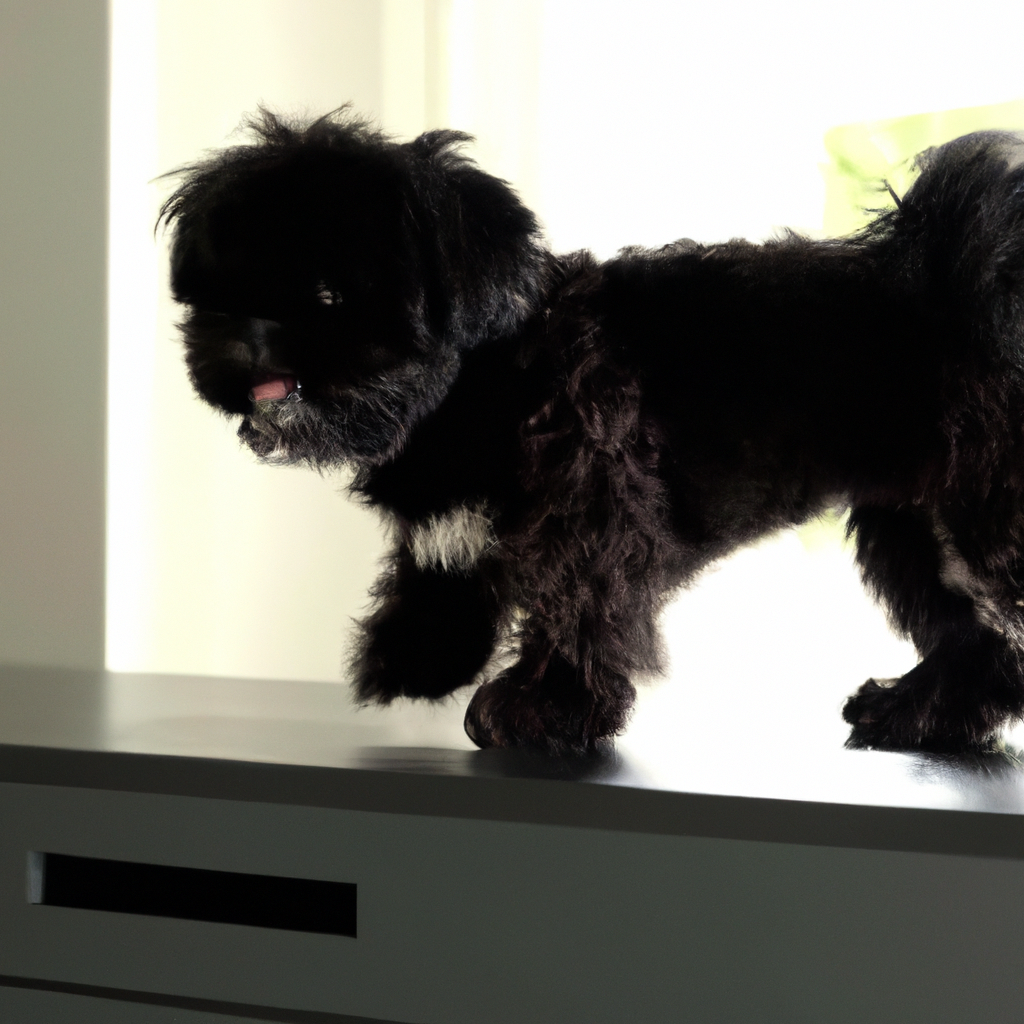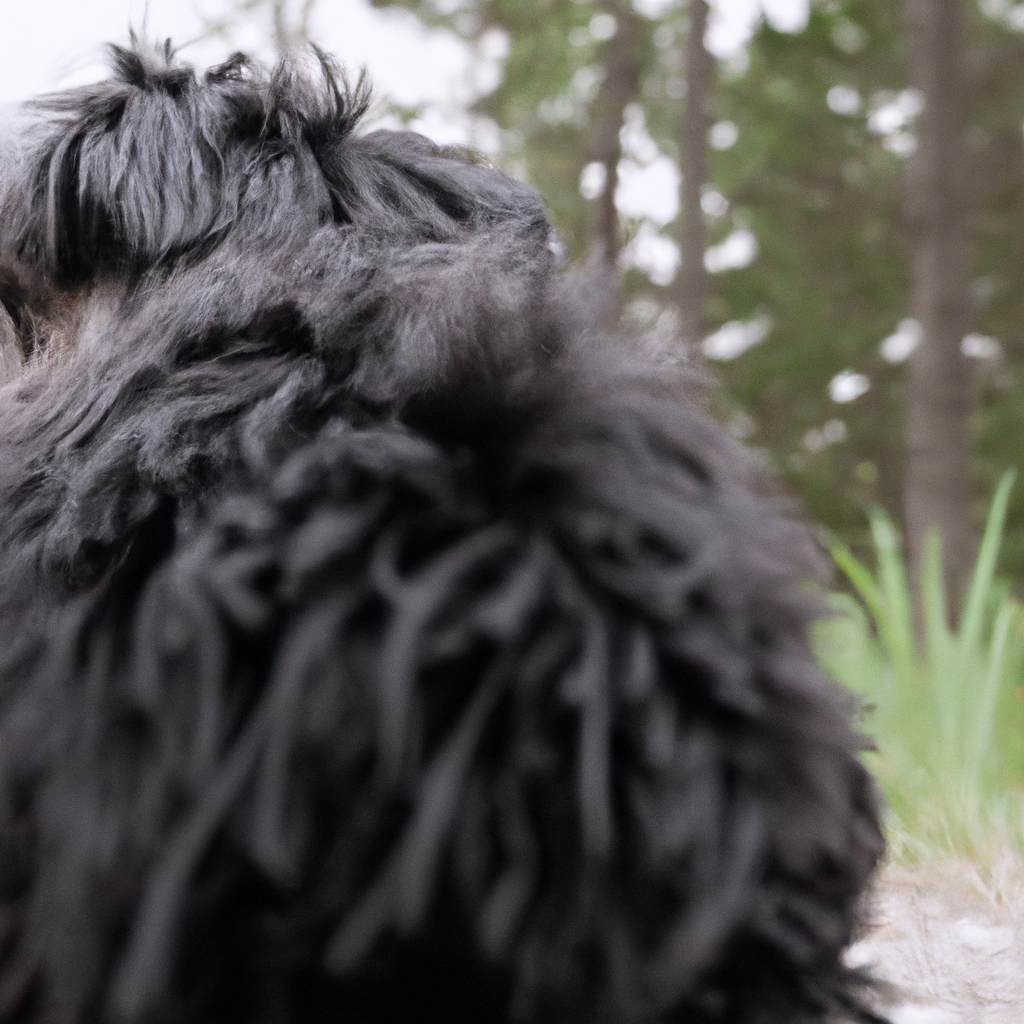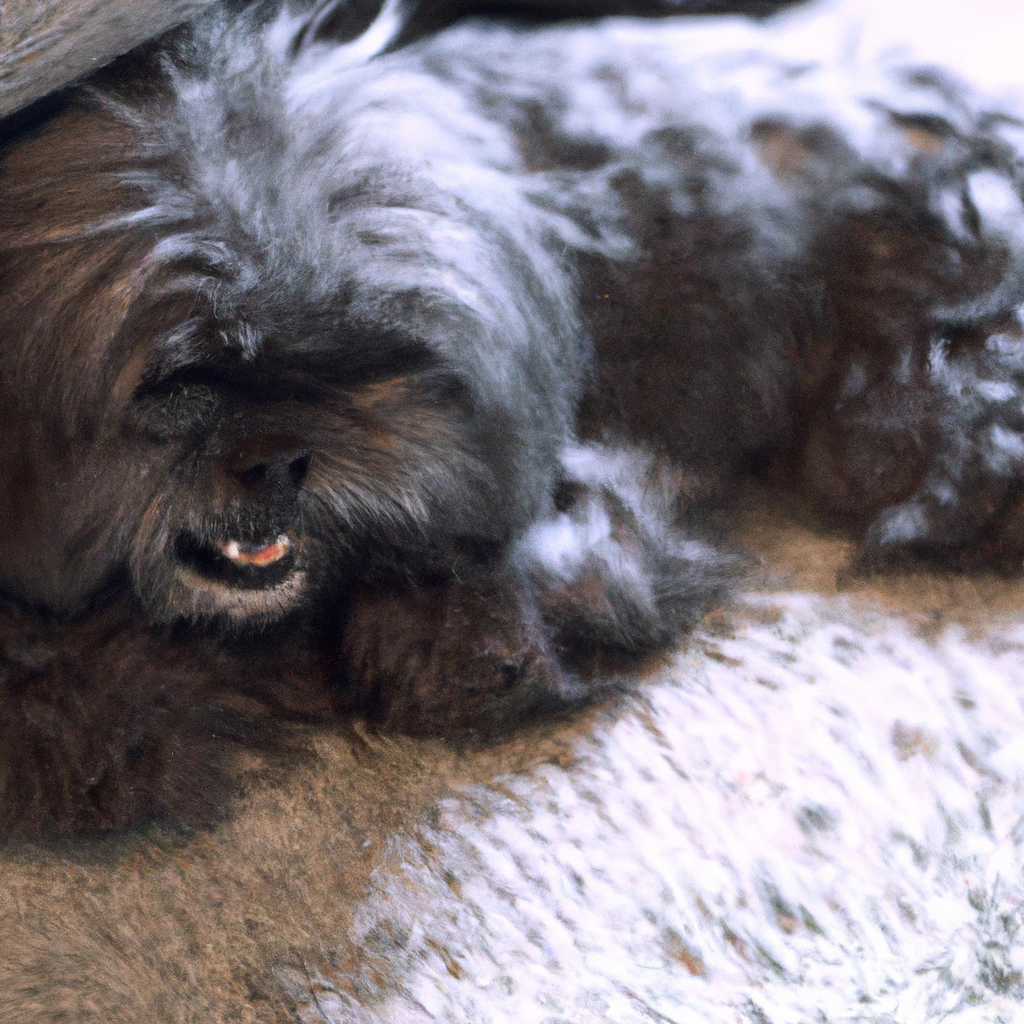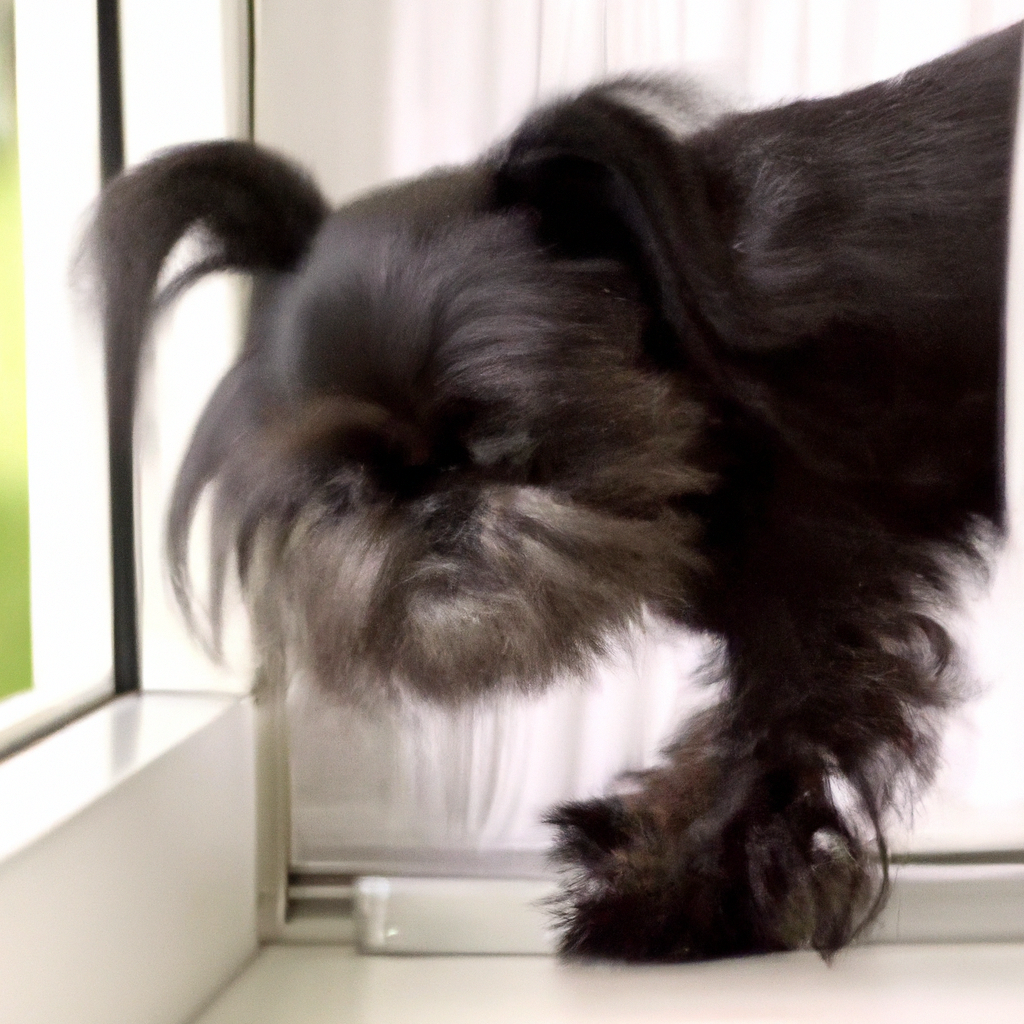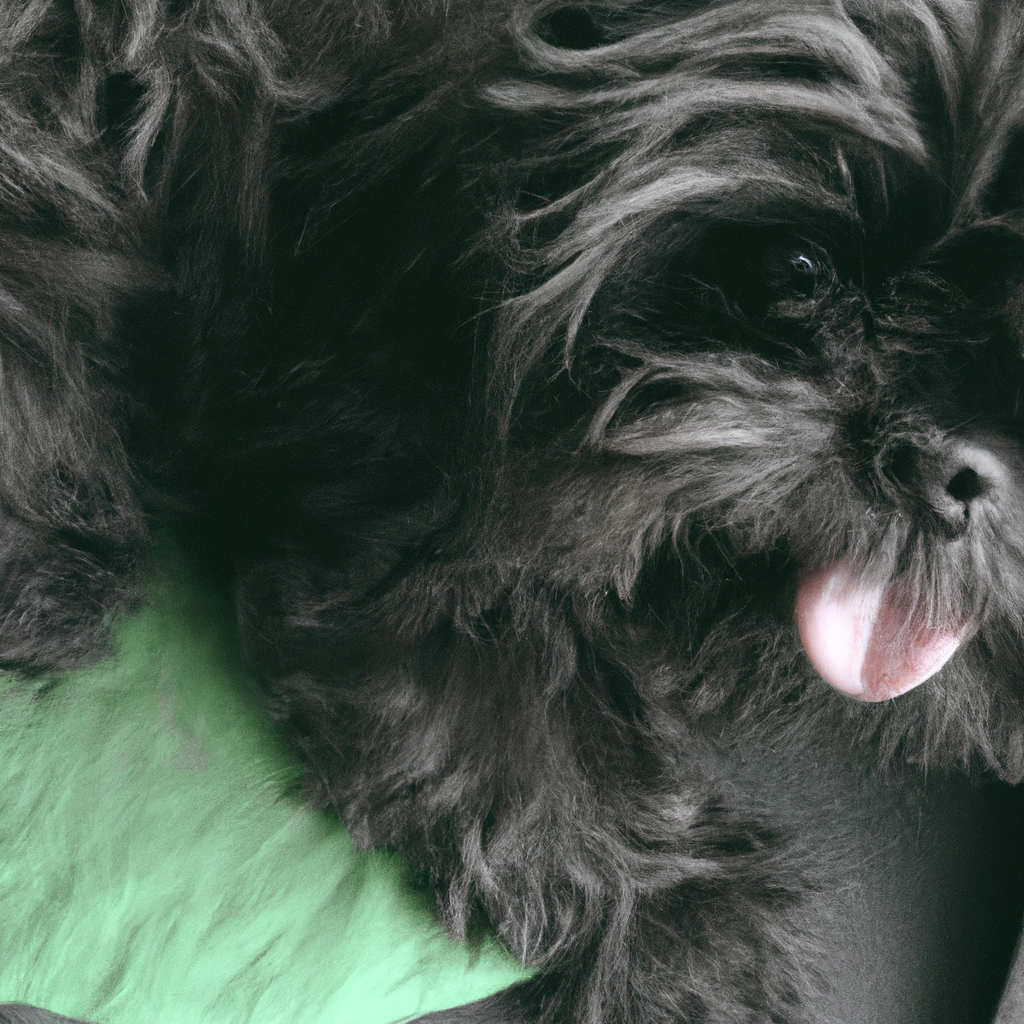Managing Affenpinschers behavioral issues involves understanding the unique temperament and characteristics of this small, energetic breed. Affenpinschers, also known as “Monkey Terriers,” are known for their bold and stubborn nature, which can sometimes lead to behavioral problems if not properly managed. This guide will provide insights into the common behavioral issues of Affenpinschers, such as excessive barking, stubbornness, and aggression, and offer practical strategies for managing these issues. These strategies include consistent training methods, socialization, exercise, and mental stimulation. Understanding and addressing these issues is crucial for maintaining a harmonious relationship with your Affenpinscher.
Understanding and Addressing Affenpinschers’ Aggression Issues
Affenpinschers, affectionately known as “Monkey Dogs,” are small but mighty creatures. They are known for their distinctive appearance and playful, energetic nature. However, like any breed, Affenpinschers can sometimes exhibit behavioral issues, particularly aggression. Understanding and addressing these issues is crucial to maintaining a harmonious relationship with your furry friend.
Affenpinschers are naturally protective and territorial, which can sometimes manifest as aggression. This is not necessarily a sign of a ‘bad’ dog, but rather an instinctual response to perceived threats. It’s important to remember that aggression is often a symptom of underlying issues such as fear, frustration, or anxiety. Therefore, managing aggression in Affenpinschers involves identifying and addressing these root causes.
One common trigger for aggression in Affenpinschers is fear. These dogs are small and can feel threatened by larger dogs or unfamiliar people. If your Affenpinscher is showing signs of fear-based aggression, it’s essential to help them feel safe. This might involve avoiding situations that scare them, gradually desensitizing them to these situations, or consulting with a professional dog trainer or behaviorist.
Another common cause of aggression in Affenpinschers is frustration. This breed is known for its high energy levels and needs plenty of physical and mental stimulation. Without this, they can become bored and frustrated, which can lead to aggressive behavior. To prevent this, ensure your Affenpinscher gets plenty of exercises, has a variety of toys to play with, and receives plenty of attention and interaction from you.
Anxiety can also lead to aggression in Affenpinschers. This can be triggered by a variety of factors, such as changes in their environment, separation from their owners, or traumatic experiences. If you suspect your Affenpinscher is suffering from anxiety, it’s important to consult with a vet or a professional dog behaviorist. They can provide guidance on how to manage this issue, which might involve behavioral therapy, medication, or changes to your dog’s environment.
In addition to addressing these underlying issues, there are several strategies you can use to manage aggression in Affenpinschers. One effective approach is positive reinforcement training. This involves rewarding your dog for good behavior, rather than punishing them for bad behavior. This can help your Affenpinscher learn that aggression is not an effective way to get what they want.
Socialization is also crucial for preventing aggression in Affenpinschers. This involves exposing your dog to a variety of people, animals, and environments in a controlled and positive way. This can help them learn to feel comfortable and confident in different situations, reducing the likelihood of aggression.
Finally, consistency is key when managing aggression in Affenpinschers. This means consistently reinforcing good behavior, maintaining a stable environment, and addressing any issues as soon as they arise. This can help your Affenpinscher feel secure and understand what is expected of them.
In conclusion, managing aggression in Affenpinschers involves understanding the underlying causes of this behavior and addressing them effectively. This might involve making changes to your dog’s environment, providing them with plenty of stimulation, using positive reinforcement training, and ensuring they are well socialized. With patience, understanding, and consistency, you can help your Affenpinscher overcome their aggression issues and enjoy a happy, harmonious relationship with them.
How to Manage Separation Anxiety in Affenpinschers
Affenpinschers, affectionately known as “Monkey Dogs,” are small but mighty creatures known for their distinctive appearance and lively personality. However, like any other breed, they can sometimes exhibit behavioral issues, one of the most common being separation anxiety. This is a condition where a dog becomes extremely anxious and distressed when left alone. If you’re an Affenpinscher owner grappling with this issue, don’t fret. There are several strategies you can employ to manage and alleviate your furry friend’s anxiety.
Firstly, it’s important to understand that separation anxiety in Affenpinschers, or any dog breed for that matter, is not a sign of disobedience or spite. It’s a genuine panic response that your pet cannot control. Recognizing this can help you approach the situation with empathy and patience, which are crucial in managing this condition.
One effective way to manage separation anxiety in Affenpinschers is through gradual desensitization. This involves slowly getting your dog accustomed to being alone. Start by leaving your Affenpinscher alone for just a few minutes at a time, and gradually increase the duration as your pet becomes more comfortable. It’s important to make your departures and arrivals low-key to avoid triggering anxiety. Over time, your Affenpinscher will learn that your departure is not something to be feared, but a normal part of life.
Another strategy is to provide your Affenpinscher with plenty of physical and mental stimulation. Regular exercise can help burn off excess energy and reduce anxiety. Mental stimulation, such as puzzle toys or treat-dispensing toys, can keep your dog occupied and distracted when you’re not around. Remember, a tired dog is a happy dog.
Counter-conditioning is another technique that can be effective in managing separation anxiety. This involves changing your dog’s emotional response to being alone. For instance, you could give your Affenpinscher a special treat or toy that they only get when you’re away. This way, your departure becomes associated with something positive, rather than something negative.
In some cases, professional help may be necessary. If your Affenpinscher’s separation anxiety is severe or if the above strategies don’t seem to be working, it might be time to consult with a professional dog trainer or a veterinary behaviorist. These experts can provide personalized advice and treatment plans tailored to your dog’s specific needs.
Lastly, it’s important to remember that managing separation anxiety in Affenpinschers is not a quick fix. It requires time, patience, and consistency. There may be setbacks along the way, but don’t get discouraged. With the right approach and plenty of love and understanding, you can help your Affenpinscher overcome their anxiety and lead a happier, more relaxed life.
In conclusion, while separation anxiety can be a challenging issue to deal with, it’s not insurmountable. By understanding the root of the problem, employing strategies like gradual desensitization, providing physical and mental stimulation, and using counter-conditioning techniques, you can help manage your Affenpinscher’s separation anxiety. And remember, if you’re feeling overwhelmed, don’t hesitate to seek professional help. After all, our furry friends deserve the best care we can provide.
Techniques for Curbing Excessive Barking in Affenpinschers
Affenpinschers, affectionately known as “Monkey Dogs,” are small but mighty creatures. They are known for their distinctive appearance and lively personality. However, like any breed, they can exhibit certain behavioral issues, one of the most common being excessive barking. This can be a challenge for many pet owners, but with the right techniques, it’s possible to manage this behavior effectively.
Affenpinschers are naturally alert and protective, which can lead to a lot of barking. They are quick to sound the alarm at any perceived threat, making them excellent watchdogs. However, this can also lead to excessive barking, even when there’s no real danger. Understanding this is the first step in managing the behavior. It’s not about punishing your Affenpinscher for doing what comes naturally, but rather teaching them when it’s appropriate to bark and when it’s not.
One effective technique for curbing excessive barking is through positive reinforcement. This involves rewarding your Affenpinscher for quiet behavior. For instance, if your dog barks when someone comes to the door, try redirecting their attention with a treat or toy. Once they’re quiet, give them the reward. Over time, they’ll start to associate being quiet with positive outcomes.
Another technique is to use a ‘quiet’ command. Start by saying ‘quiet’ when your Affenpinscher barks. If they stop barking, reward them with a treat or praise. If they continue to bark, repeat the command in a firm but calm voice. It’s important to be consistent with this technique. Your Affenpinscher needs to understand that ‘quiet’ always means they should stop barking.
Socialization is also key in managing excessive barking. Affenpinschers that are well-socialized are less likely to bark at every new sight or sound. Make sure your dog has plenty of opportunities to interact with other dogs and people in a variety of settings. This can help them become more comfortable in different situations and reduce their need to bark.
Exercise can also play a role in managing barking. Affenpinschers are energetic dogs that need regular physical activity. Without it, they can become bored and start to bark more. Make sure your dog gets plenty of walks, playtime, and mental stimulation. This can help burn off excess energy and reduce their tendency to bark.
Lastly, if your Affenpinscher’s barking seems to be anxiety-related, it may be worth consulting with a vet or a professional dog trainer. They can provide further guidance and suggest techniques tailored to your dog’s specific needs.
In conclusion, managing excessive barking in Affenpinschers involves understanding their natural instincts, using positive reinforcement, teaching a ‘quiet’ command, socializing your dog, providing plenty of exercise, and seeking professional help if needed. It’s important to remember that every dog is unique, and what works for one Affenpinscher may not work for another. Patience, consistency, and understanding are key in successfully managing this behavior. With time and effort, you can help your Affenpinscher become a quieter, happier member of your household.
Dealing with Affenpinschers’ Destructive Chewing Habits
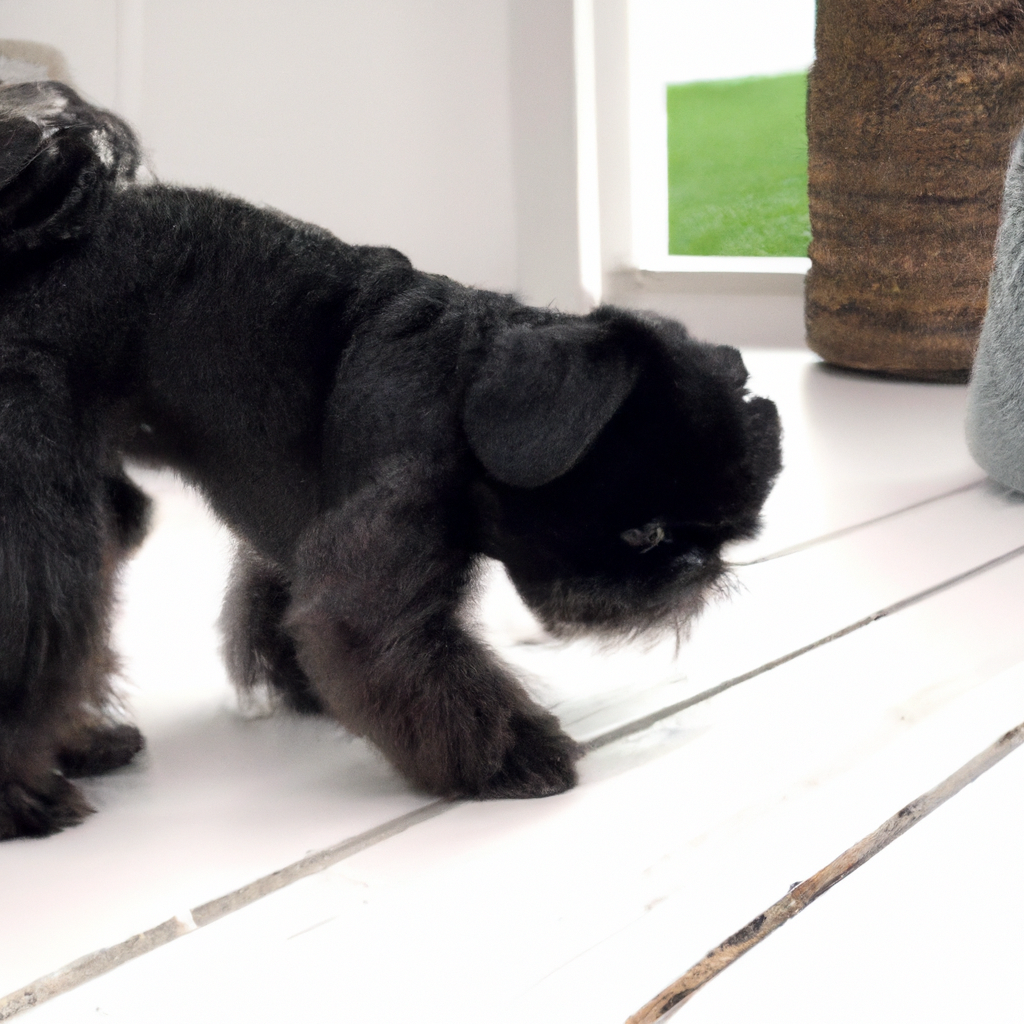
Affenpinschers, affectionately known as “Monkey Dogs,” are small but mighty creatures with a heart full of love and a head full of mischief. These adorable dogs are known for their playful and energetic nature, but sometimes, this energy can translate into destructive chewing habits. If you’re an Affenpinscher owner struggling with this issue, don’t fret. There are effective ways to manage this behavior and channel your furry friend’s energy into more constructive activities.
Firstly, it’s essential to understand that chewing is a natural behavior for dogs. It helps them explore their environment, relieve stress, and keep their teeth clean. However, when your Affenpinscher starts chewing on your favorite pair of shoes or the corner of your expensive couch, it becomes a problem. The key to managing this behavior is not to stop it entirely but to redirect it towards appropriate objects.
One of the most effective ways to do this is by providing your Affenpinscher with a variety of chew toys. These toys should be durable enough to withstand your dog’s powerful jaws and interesting enough to keep them engaged. You can even stuff these toys with treats or kibble to make them more appealing. This way, your Affenpinscher will be more likely to chew on the toys rather than your belongings.
Another crucial aspect of managing destructive chewing habits is ensuring your Affenpinscher gets plenty of physical and mental stimulation. Affenpinschers are active and intelligent dogs that require regular exercise and mental challenges to keep them happy and healthy. A bored Affenpinscher is more likely to engage in destructive behaviors, including excessive chewing. Therefore, daily walks, play sessions, and training exercises can go a long way in curbing this issue.
Training is another effective tool in managing your Affenpinscher’s chewing habits. Teaching your dog basic commands like “leave it” or “drop it” can be incredibly helpful in preventing them from chewing on inappropriate items. Remember, patience and consistency are key when it comes to training. It might take some time for your Affenpinscher to learn these commands, but once they do, it will be much easier to control their chewing behavior.
In some cases, destructive chewing can be a sign of underlying issues such as anxiety or dental problems. If your Affenpinscher’s chewing habits seem excessive or if they seem to be in pain when chewing, it’s a good idea to consult with a vet. They can help identify any potential health issues and provide appropriate treatment.
Lastly, it’s important to remember that punishment is not an effective solution for destructive chewing. Scolding or physically punishing your Affenpinscher can lead to fear and anxiety, which can actually exacerbate the problem. Instead, focus on positive reinforcement. Praise and reward your dog when they chew on their toys and ignore inappropriate chewing. This will help your Affenpinscher understand what behavior is acceptable and what is not.
In conclusion, managing an Affenpinscher’s destructive chewing habits can be a challenge, but with patience, consistency, and the right strategies, it’s entirely possible. By providing appropriate chew toys, ensuring regular physical and mental stimulation, implementing effective training techniques, and consulting with a vet when necessary, you can help your Affenpinscher channel their energy into positive behaviors. Remember, every dog is unique, so what works for one Affenpinscher might not work for another. It’s all about finding what works best for your furry friend.
Training Tips for Stubborn Affenpinschers
Affenpinschers, affectionately known as “Monkey Dogs,” are small, energetic, and intelligent dogs with a playful and sometimes stubborn nature. Their unique personality traits can sometimes lead to behavioral issues, but with the right approach, these can be managed effectively.
Firstly, it’s important to understand that Affenpinschers are naturally curious and independent. They love to explore their surroundings and can be quite determined when they set their minds on something. This can sometimes be mistaken for stubbornness. However, it’s simply a part of their inquisitive nature.
To manage this, it’s crucial to establish a consistent routine and clear boundaries. Affenpinschers thrive on structure and predictability. They need to know what is expected of them and when. This can be achieved by setting a regular schedule for meals, walks, playtime, and rest. Consistency is key here. The more predictable their routine, the less likely they are to act out or become stubborn.
Next, positive reinforcement is a powerful tool in managing Affenpinschers’ behavioral issues. They respond well to rewards and praise. When your Affenpinscher behaves well or follows a command, reward them with a treat, a favorite toy, or simply a loving pat on the head. This will encourage them to repeat the good behavior. Remember, it’s important to reward them immediately after the desired behavior, so they can make the connection between the behavior and the reward.
However, it’s equally important not to reward bad behavior. If your Affenpinscher is acting stubborn or refusing to follow a command, don’t give in and reward them anyway. This will only reinforce the bad behavior. Instead, ignore the behavior and only give attention when they start behaving appropriately.
Another effective strategy is to use distraction. If your Affenpinscher is fixated on something and refusing to listen, try to divert their attention to something else. This could be a toy, a treat, or even a different command. Once their attention is diverted, you can then redirect them to the desired behavior.
Training sessions should be short and fun. Affenpinschers have a short attention span and can quickly become bored or frustrated with long, repetitive training sessions. Keep sessions short, around 10-15 minutes, and make them as enjoyable as possible. Use games and toys to keep them engaged and interested.
Patience is also crucial when dealing with Affenpinschers’ behavioral issues. Remember, they are intelligent and independent dogs. They may not always follow commands immediately or behave exactly as you want them to. It’s important not to get frustrated or angry. Instead, remain calm and patient, and keep trying.
Lastly, socialization is key in managing Affenpinschers’ behavioral issues. They need to be exposed to a variety of people, animals, and environments from a young age. This will help them become more adaptable and less likely to act out or become stubborn in unfamiliar situations.
In conclusion, managing Affenpinschers’ behavioral issues requires a combination of consistency, positive reinforcement, distraction, fun training sessions, patience, and socialization. With the right approach, you can help your Affenpinscher become a well-behaved and happy member of your family.
How to Handle Affenpinschers’ Fear and Phobias
Affenpinschers, affectionately known as “Monkey Dogs,” are small but mighty creatures. They are known for their distinctive appearance and lively personality. However, like any other breed, Affenpinschers can also exhibit behavioral issues, particularly fear and phobias. Understanding and managing these issues can significantly improve your pet’s quality of life.
Fear in Affenpinschers can manifest in various ways, such as aggression, avoidance, or even destructive behavior. It’s essential to remember that fear is a natural response to perceived danger. However, when fear becomes excessive or irrational, it can develop into a phobia. Common phobias in dogs include fear of loud noises, strangers, or specific situations like vet visits.
The first step in managing your Affenpinscher’s fear and phobias is to identify the triggers. Pay close attention to your dog’s behavior and note any patterns. For instance, does your dog become anxious during thunderstorms or when meeting new people? Once you’ve identified the triggers, you can start to implement strategies to help your dog cope.
One effective method is gradual desensitization. This involves exposing your dog to the fear trigger in a controlled and gradual manner, starting at a low intensity and slowly increasing it over time. For example, if your Affenpinscher is afraid of loud noises, you might start by playing a recording of the noise at a low volume and gradually increase it as your dog becomes more comfortable. Remember, the goal is not to overwhelm your dog but to help them become accustomed to the trigger.
Counter-conditioning is another useful technique. This involves changing your dog’s emotional response to the fear trigger. Instead of associating the trigger with fear, you want your dog to associate it with something positive. For instance, if your Affenpinscher is afraid of strangers, you might have a friend (the stranger) give your dog a treat. Over time, your dog will start to associate strangers with positive experiences, reducing their fear.
It’s also important to provide a safe space for your Affenpinscher. This could be a specific room or a crate where your dog can retreat when they’re feeling scared. Make sure this space is comfortable and filled with your dog’s favorite toys or blankets. This can provide a sense of security and help reduce anxiety.
While these techniques can be effective, it’s crucial to be patient and consistent. Changing behavior takes time, and progress may be slow. It’s also important to avoid punishing your dog for their fear-based behavior. This can only increase their anxiety and make the problem worse.
In some cases, professional help may be needed. If your Affenpinscher’s fear or phobias are severe or if you’re struggling to manage them on your own, consider seeking help from a professional dog trainer or a veterinary behaviorist. These professionals have the knowledge and experience to provide tailored strategies and support.
In conclusion, managing your Affenpinscher’s fear and phobias involves understanding the triggers, implementing strategies like gradual desensitization and counter-conditioning, providing a safe space, and seeking professional help if needed. With patience, consistency, and a lot of love, you can help your Affenpinscher overcome their fears and live a happier, healthier life.
Solutions for Affenpinschers’ Hyperactivity and Restlessness
Affenpinschers, affectionately known as “Monkey Dogs,” are small but mighty creatures with a playful and energetic nature. However, their high energy levels can sometimes translate into hyperactivity and restlessness, which can be challenging for pet owners to manage. But don’t worry, there are several effective strategies to help manage these behavioral issues and ensure your Affenpinscher is happy, healthy, and well-behaved.
Firstly, it’s important to understand that Affenpinschers are naturally energetic and curious dogs. They love to explore their surroundings and play, which can sometimes be mistaken for hyperactivity. Therefore, providing them with plenty of physical exercise is crucial. Regular walks, playtime in the yard, or even a game of fetch can help burn off their excess energy and reduce their restlessness. Remember, a tired Affenpinscher is a well-behaved Affenpinscher.
In addition to physical exercise, mental stimulation is equally important for these intelligent dogs. Puzzle toys, obedience training, or even a game of hide and seek can keep their minds sharp and engaged. This not only helps to curb their hyperactivity but also promotes good behavior.
Transitioning from the importance of mental stimulation, it’s worth noting that training plays a significant role in managing Affenpinschers’ behavioral issues. Start training your Affenpinscher from a young age and be consistent with it. Use positive reinforcement techniques such as treats, praises, or petting to reward good behavior. This will encourage them to repeat the behavior in the future. However, be patient as Affenpinschers can be stubborn at times.
While training, it’s essential to establish yourself as the pack leader. Affenpinschers are known for their bold and assertive nature, and if they sense a lack of leadership, they may try to take charge, leading to behavioral issues. Show them that you’re in control but do it in a loving and respectful manner.
Moving on, diet can also influence your Affenpinscher’s behavior. A diet high in sugar or carbohydrates can lead to spikes in energy levels, contributing to hyperactivity. Therefore, it’s advisable to feed your Affenpinscher a balanced diet rich in proteins and healthy fats. Consult with your vet to determine the best diet plan for your furry friend.
Lastly, it’s important to remember that every Affenpinscher is unique and what works for one might not work for another. Therefore, it’s crucial to understand your Affenpinscher’s individual needs and tailor your approach accordingly.
In conclusion, managing Affenpinschers’ hyperactivity and restlessness can be a challenge, but with the right strategies, it’s certainly achievable. Regular exercise, mental stimulation, consistent training, a balanced diet, and understanding your Affenpinscher’s individual needs are key to managing their behavioral issues. Remember, it’s all about creating a loving and stimulating environment for your Affenpinscher to thrive. With patience, consistency, and love, you can help your Affenpinscher become the well-behaved and happy dog they’re meant to be.
Tips for Managing Affenpinschers’ Food Guarding Behavior
Affenpinschers, affectionately known as “Monkey Dogs,” are small but mighty creatures with a big personality. They are known for their playful and adventurous spirit, but like any other breed, they can exhibit certain behavioral issues. One such issue that is common among Affenpinschers is food guarding. This behavior is characterized by aggressive actions such as growling, snapping, or even biting when someone approaches their food. While this can be alarming, it’s important to remember that this is a natural instinct for dogs, and with the right approach, it can be managed effectively.
Firstly, it’s crucial to understand why your Affenpinscher might be exhibiting food guarding behavior. This behavior is often rooted in fear and insecurity. Your dog may be worried that their food will be taken away, leading them to act defensively. It’s also possible that past experiences, such as having to compete for food, have led to this behavior. Understanding the root cause can help you approach the issue with empathy and patience.
One of the most effective ways to manage food guarding behavior is through gradual desensitization. This involves slowly getting your Affenpinscher used to the presence of people around their food. Start by standing a distance away while they eat, then gradually move closer over time. It’s important to do this slowly and consistently, as rushing the process could exacerbate the issue.
Another strategy is to use positive reinforcement. This means rewarding your Affenpinscher for good behavior, such as eating calmly without showing signs of aggression. The reward could be a treat, praise, or a favorite toy. This helps your dog associate the presence of people around their food with positive experiences, which can help reduce their defensive behavior.
It’s also beneficial to establish a regular feeding schedule. This provides your Affenpinscher with a sense of security, as they know when to expect their next meal. This can help alleviate any anxiety they may have about their food being taken away.
While these strategies can be effective, it’s important to remember that every dog is unique, and what works for one may not work for another. It’s also crucial to approach the issue with patience and understanding. Changing a dog’s behavior takes time, and there may be setbacks along the way. But with consistency and love, you can help your Affenpinscher feel more secure and reduce their food guarding behavior.
In some cases, food guarding behavior can be severe and may require professional help. If your Affenpinscher’s behavior is causing concern and you’re struggling to manage it, don’t hesitate to seek advice from a professional dog trainer or a behaviorist. They can provide you with tailored strategies and support to help manage your dog’s behavior.
In conclusion, managing an Affenpinscher’s food guarding behavior involves understanding the root cause, using strategies such as gradual desensitization and positive reinforcement, establishing a regular feeding schedule, and seeking professional help if needed. Remember, patience and consistency are key. With the right approach, you can help your Affenpinscher feel more secure and enjoy their meals in peace.In conclusion, managing Affenpinschers behavioral issues involves consistent training from a young age, using positive reinforcement techniques. Socialization with other dogs and people can help reduce aggression and anxiety. Regular exercise and mental stimulation can prevent destructive behaviors. Professional help from a dog trainer or behaviorist may be necessary for severe issues. It’s also important to provide a balanced diet and regular vet check-ups to ensure the dog’s overall health, as health issues can sometimes contribute to behavioral problems.
